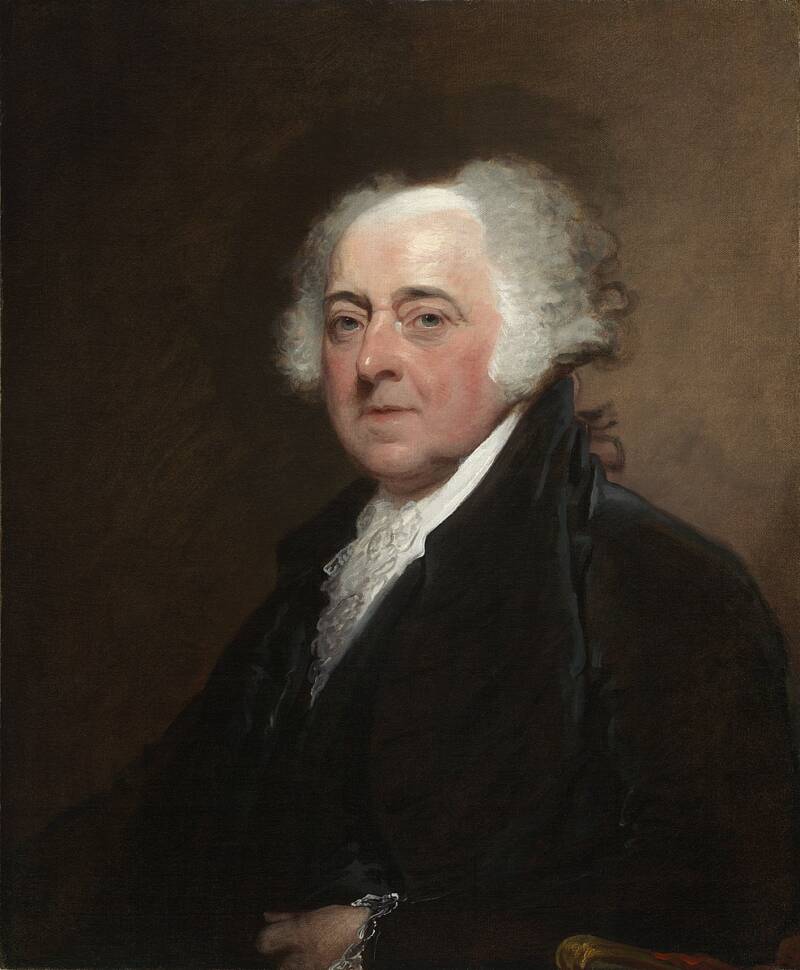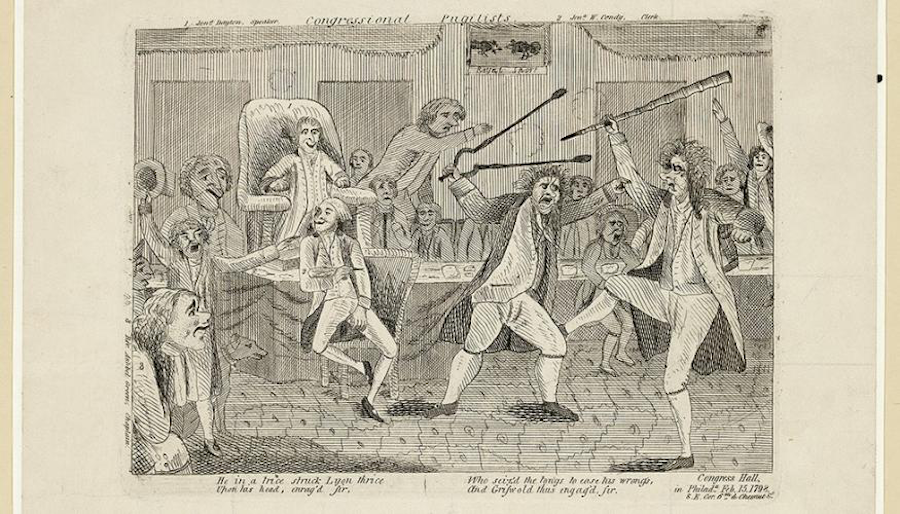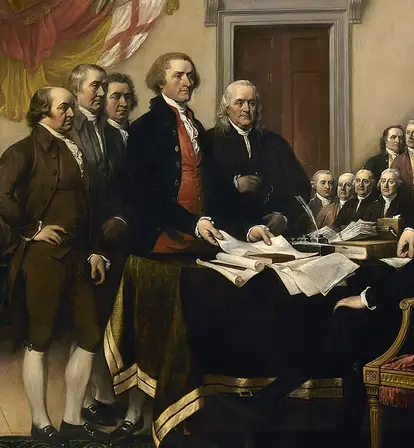From George Washington and Alexander Hamilton to Ben Franklin and Thomas Jefferson, the men who forged the nation also committed some unspeakable acts.
Even though America’s founding fathers have been mythologized into godlike figures, it’s important to remember that they were human and were, of course, subject to flaws. These men have been carved in stone, but they were anything like the perfect sculptures their resolute faces on Mount Rushmore suggest they were. They were disloyal, narcissistic, and abusive.
In order to really know who the founding fathers were, we must examine them in full, including their pitfalls — which range from petty to downright evil.

John Adams Abused His Presidential Power

Wikimedia CommonsWhile president, John Adams made it illegal to criticize him.
John Adams was the second president of the United States, he wrote the oldest constitution still in use today, he was a founding father, and the first president to live in the White House.
But the founding father was also borderline dictatorial.
Adams didn’t take criticism well and despised those who voiced it, so when Congressman Matthew Lyon wrote that Adams was “swallowed up in a continual grasp for power, in an unbounded thirst for ridiculous pomp, foolish adulation and selfish avarice,” he found himself in trouble with the president.
In 1798, Adams signed the Alien and Sedition Acts, which made it illegal to “write, print, utter, or publish… any false, scandalous and malicious writing or writings” about the president or other officials of the executive branch.
Adams claimed he’d rendered free speech punishable by law as a matter of national security, considering the new nation was nearing a war with France. After Rep. Lyon made those critiques, he was accused of being “a malicious and seditious person, and of a depraved mind and a wicked and diabolical disposition.”
Lyons was consequently fined $1,000, convicted of wreaking undo incitement, and sentenced to four months in prison. To Adams’ chagrin, Lyon campaigned for reelection behind bars and won as “a martyr to the cause of liberty and the rights of man.” There was a parade upon his February 1799 release.

Library of CongressAn illustration depicts representatives brawling during a session of congress the year the Alien and Sedition Acts were signed into law.
But worse off than Congressman Lyon was newspaper editor Benjamin Franklin Bache, the grandson of Benjamin Franklin. Bache wrote that the president was “old, querulous, bald, blind, crippled,” and “toothless.” Bache was assaulted and his home was vandalized. Meanwhile, his pregnant wife received numerous death threats.
Meanwhile, the “Alien” part of the law made it as easy as possible for the president to deport immigrants and made it much harder for naturalized citizens to vote.
More than a dozen people were convicted under the Alien and Sedition Acts. The people protested and Thomas Jefferson used the vehement opposition to his advantage during the 1800 presidential election — and won. The Alien and Sedition Acts expired during Adams’ term and Jefferson pardoned all who were convicted under the law and most fines were refunded.
As petty as he was authoritarian, Adams became the first president to not attend the inauguration of his successor.







